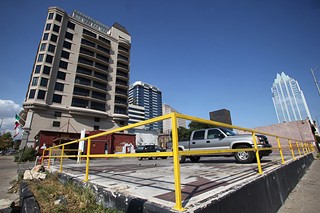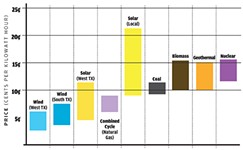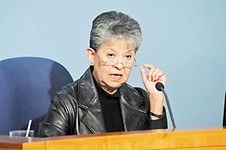Zone Defense
Council Wrangles Over 'Contract Zoning'
By Mike Kanin, Fri., March 22, 2013

On March 7, City Council approved an ordinance that clears the way for a new boutique hotel and residential high-rise at the corner of Fourth & Guadalupe Streets. In return for a zoning change that will let the project developers – Hotel ZaZa and Gables Residential – construct a larger building than would have been allowed under the existing zoning category, Council members extracted commitments from the developer to maintain the façade of the current building (the former site of the Ginger Man pub) and to participate in the city's Great Streets program. Despite the best efforts of Council Members Laura Morrison, Kathie Tovo, and Bill Spelman, they were not able to secure contributions for affordable housing (units or fees-in-lieu) that sometimes accompany such deals. (For more on the project, see "Then There's This," Feb. 22 and March 14.)
Accordingly, Morrison, Tovo, and Spelman voted no, with Tovo and Spelman each carefully pointing out that they were using their "discretionary Council authority" to reject the zoning change. The sensitivity was part of a loaded discussion that, said Mayor Lee Leffingwell from the dais, trended dangerously close to a legal boundary. "I intend to support the motion," Leffingwell said. "I believe that what we are dealing with here" – presumably, Morrison and Tovo's attempt to attach affordable housing to the project – "at its very best is a gray area of the law. At its worst, [it's] a clear violation of the law in considering and requiring payment or compensation in return for approval of a zoning case."
At issue is the way the city does its zoning business. Under the law, exchanges of community benefits must follow codified city rules and be reasonably in accord with a given development project (it isn't kosher, for example, for the city to demand acres of parkland from a mall that is nowhere near said green space). Step over that line – toward a direct quid pro quo exchange of particular zoning exemptions in return for particular community benefits – and there could be problems. State law further complicates the matter by expressly banning "inclusionary zoning" – e.g., the practice of a straight exchange of affordable housing benefits for zoning variances.
The current local result is a sort of wink-and-nod splice. Developers and their representatives have an idea of what it might cost in terms of affordable housing percentages, bike amenities, Great Streets, and other such community benefits to win the support of a given Council member. They can also write a check to a housing organization such as Foundation Communities in the well-informed hopes that the result might just be clear sailing at Council.
Of course, not everyone wants to play ball all of the time.
The Downtown Austin Plan should have relieved some of that mutual pressure. Approved in late 2011, after a typically lengthy and contentious process, the plan included the Downtown Density Bonus Program, a clear path for developers to build larger or taller buildings in exchange for community benefits – a significant portion of which would be directed to affordable housing. It would seem to navigate the city around any legal issue.
Except the plan has yet to be codified into ordinance – and is thus not quite a safe rule. Nevertheless, in the March 7 discussion of the Hotel ZaZa project, Morrison and Spelman took pains to demonstrate that the Downtown Density Bonus is an established practice. "Is it clear to you what the requirements are of the policy that we passed as part of the Downtown Plan a few months ago?" Spelman asked the city's Urban Design Division Manager Jim Robertson.
Robertson continued the careful public dance that he, Spelman, and Gables representative Richard Suttle engaged in over the ZaZa project. "Yes, it is clear that under the policy that Council adopted as part of the Downtown Austin Plan, making the calculations is straightforward," Robertson said. "Mr. Suttle is correct that those recommendations have not yet been brought to you and adopted as code." Suttle was able to argue that there is no formally established city mechanism for an affordable housing fund, and, in the end, Sheryl Cole, Mike Martinez, and Chris Riley joined Leffingwell in approving the ZaZa deal without an affordable housing component.
Suttle's client, Gables Residential, apparently did not want to play ball, and, under current city ordinances, it was difficult for the city to do anything about it. Developer Perry Lorenz is generally considered one of the more progressive growth voices in town. In a 2007 deal with the Zilker Neighborhood Association, Lorenz was part of a $1 million contribution to support affordable housing in that section of town, easing approval of his Barton Place condominium project. Still, Lorenz could understand Leffingwell's concerns. "I think [the mayor] is acutely aware of the dangers," Lorenz told the Chronicle.
Asked about the controversy, Leffingwell said (via email): "The Council approved a Downtown Plan months ago that contained a 'density bonus' provision to include a requirement for 'community benefits' whenever standard [floor-to-area ratio] limits are exceeded on CURE zoning cases. However, this provision has not yet been codified. This makes requiring a density bonus as a quid pro quo for zoning approval problematic. It is the case that some density bonus provisions can be implemented ... where policy has already been codified."
The matter may come to a head at today's Council meeting (March 21); Tovo and Morrison are proposing a resolution that would codify the Downtown Density Bonus portion of the Downtown Austin Plan. Tovo says she's frustrated by the fact that, thanks to the CURE (Central Urban Redevelopment) zoning afforded to Downtown projects, developers have avoided the "interim density bonus" plan (a voluntary mirror of what would be in place, should the Downtown Austin Plan ever be codified). Her resolution would close the CURE program and codify the bonus plan as city ordinance.
Passage is an open question, but Morrison and Tovo believe that even without it they are well inside the law. "It is within my discretionary ability to say no," says Tovo.
Got something to say on the subject? Send a letter to the editor.










